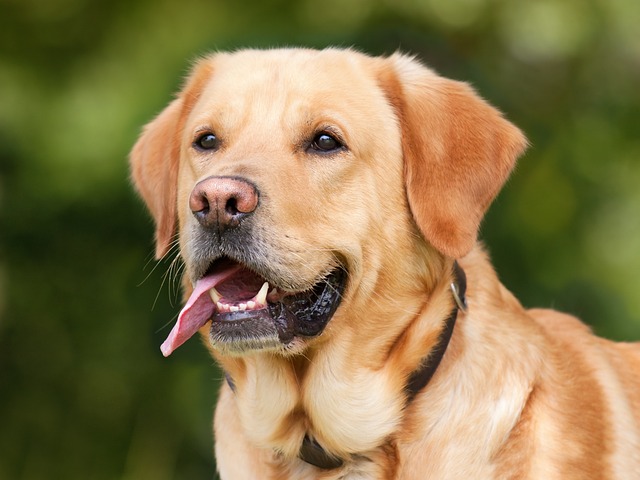· guides · 5 min read
German Shepherd Dog Care: The Ultimate Guide to Healthy Living
Discover essential tips on nutrition, grooming, training, and health to keep your German Shepherd happy, healthy, and well-adjusted.

The Ultimate Guide to German Shepherd Dog Care
German Shepherds are one of the most popular and versatile dog breeds worldwide. Known for their intelligence, loyalty, and agility, they make exceptional companions, working dogs, and family pets. Proper German Shepherd dog care requires understanding their unique needs — from nutrition to grooming, exercise, training, and health management. This guide provides comprehensive, breed-specific advice to help your German Shepherd thrive.
Quick Breed Facts
- Size: 50–90 lbs (22–40 kg)
- Lifespan: 9–13 years
- Temperament: Intelligent, loyal, protective, energetic
- Common Health Issues: Hip and elbow dysplasia, bloat (gastric dilatation-volvulus), degenerative myelopathy
Understanding German Shepherd Care
Caring for a German Shepherd involves addressing their physical, mental, and emotional needs. Their active nature demands ample exercise and mental stimulation to prevent boredom and behavior problems. This breed’s double coat requires regular grooming and seasonal attention. Awareness of health risks allows for early intervention and better outcomes. With dedicated care, your German Shepherd can enjoy a long, healthy, and happy life.
Nutrition: Fueling Your German Shepherd
Good nutrition is the foundation of German Shepherd dog care. Their diet should support their medium to large size, high activity level, and changing needs throughout life stages.
- Feed high-quality dog food formulated for large, active breeds. Look for balanced protein, fat, vitamins, and minerals.
- Complex carbohydrates like sweet potatoes, brown rice, and barley provide energy but should be balanced, as excessive carbs aren’t always beneficial.
- Adjust portion sizes based on age, weight, and activity. Growing puppies require more frequent feeding with higher caloric intake, while adults need maintenance portions.
- Safe human foods such as cooked lean meats, certain vegetables, and fruits (e.g., carrots, apples, blueberries) can supplement meals. Avoid toxic foods like chocolate, grapes, onions, and garlic.
- Monitor your dog’s weight and condition regularly to prevent obesity, which increases stress on joints.
Expert Insight: Nutrition Tips
- Feed multiple small meals to puppies to support growing joints and prevent bloat.
- Introduce new foods gradually to prevent digestive upset.
- Always provide fresh water.
Exercise: Keeping Your German Shepherd Active and Healthy
Exercise is vital for your German Shepherd’s physical health and mental well-being. Their energy levels require at least 1 to 2 hours of daily activity, including walks, playtime, and mental challenges.
- Puppies need moderated exercise to protect developing joints—avoid high-impact activities until fully grown.
- Adult dogs thrive with a mix of aerobic exercise (running, hiking) and mental stimulation (training, puzzle toys).
- Senior dogs benefit from gentle, low-impact exercise adjusted to their health abilities.
Actionable Tip: Tailoring Exercise to Your Dog’s Life Stage
- For puppies, limit play sessions and avoid jumping off high surfaces.
- For seniors, focus on short, frequent walks and gentle swimming.
Training and Socialization: Building a Confident Companion
German Shepherds are intelligent and eager to learn, making training straightforward but essential to direct their energy positively.
- Start socialization early with various people, animals, and environments to prevent fearfulness or aggression.
- Use positive reinforcement techniques—praise, treats, and consistency—for best results.
- Address breed-specific traits like herding and guarding instincts by providing controlled outlets such as obedience tasks or specialized training classes.
Grooming: Caring for the Double Coat
This breed’s double coat needs regular maintenance to stay healthy and reduce shedding.
- Brush at least twice weekly and daily during heavy shedding seasons (spring and fall).
- Baths should be occasional and as needed — too frequent bathing can strip natural oils.
- Check ears regularly for cleanliness and signs of infection.
- Trim nails every few weeks to prevent discomfort.
Expert Insight: Seasonal Shedding
- Heavy shedding occurs twice a year; increase grooming frequency during these times.
- Coat condition can be affected by climate; dry indoor air may require additional moisturizing care.
Health: Monitoring and Preventative Care
Regular veterinary visits and proactive care help maintain your German Shepherd’s health.
- Be vigilant for signs of bloat (gastric dilatation-volvulus), a life-threatening condition. Symptoms include a swollen abdomen, drooling, restlessness, and unproductive vomiting. Emergency treatment is critical.
- Hip and elbow dysplasia are common; maintain a healthy weight and avoid excessive jumping or running on hard surfaces.
- Consider spaying/neutering to reduce the risk of certain diseases and unwanted behaviors.
- Annual health screenings, dental care, vaccinations, and parasite control keep your dog in top shape.
Managing Common Behavioral and Health Challenges
German Shepherds can develop separation anxiety and other stress-related behaviors if left alone frequently or without mental stimulation.
- Crate training and interactive feeders can ease separation anxiety.
- Calming aids like pheromone diffusers and anxiety wraps may help in stressful situations.
- Regular training, socialization, and exercise are preventive strategies.
Traveling with Your German Shepherd
Whether by car, plane, or other means, safe travel requires preparation.
- Use a well-ventilated crate or secure harness in vehicles.
- For air travel, check airline requirements and crate standards.
- Bring familiar items (toys, blankets) for comfort during trips.
- Plan for regular breaks and hydration.
Frequently Asked Questions (FAQs)
Q: How often should I feed my German Shepherd?
A: Puppies need 3-4 small meals daily. Adults usually thrive on 2 meals per day.
Q: What is the best way to socialize my German Shepherd?
A: Introduce them gradually to people, other dogs, environments, and noises from a young age using positive experiences.
Q: How can I tell if my dog has bloat?
A: Look for a swollen abdomen, drooling, pacing, or gagging without vomiting. Seek emergency help immediately.
Conclusion
Effective German Shepherd dog care requires attention to their unique physiology, energetic temperament, and potential health risks. By providing balanced nutrition, appropriate exercise, consistent training, and attentive grooming, you pave the way for a strong bond and a healthy, happy dog. Regular health monitoring and preventive care ensure your German Shepherd remains by your side for many wonderful years.
Providing exceptional care tailored to the German Shepherd’s specific needs helps this remarkable breed thrive as your loyal, intelligent companion.



